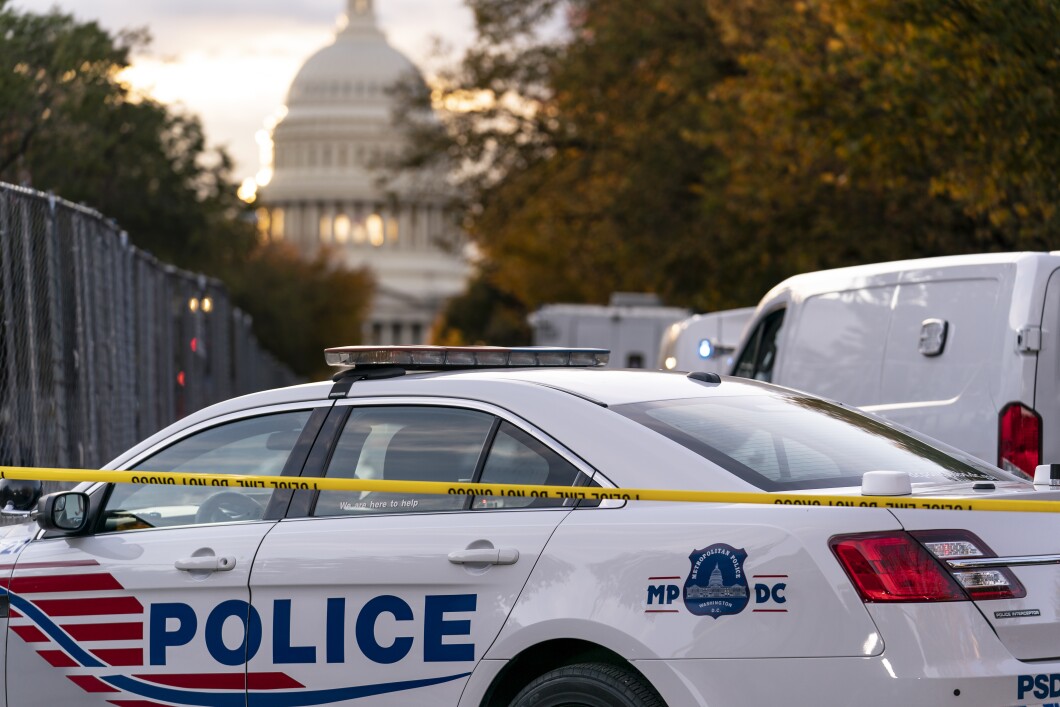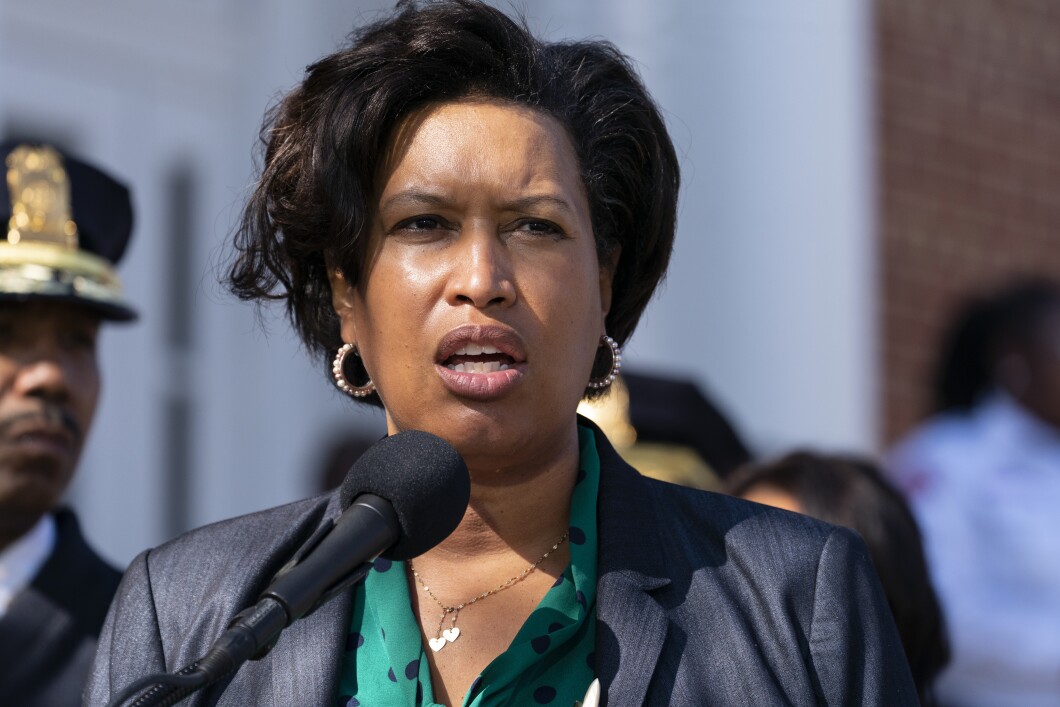
Washington, D.C., has endured a significant increase in crime in recent years, which has a ripple effect beyond the criminal acts in the district, harming the quality of life and well-being of the residents and tourists in the nation’s capital.
With violent crime up 40% in the past year and all crime up 28% in that same time, people and businesses are fleeing the district as the “random” crime wave continues. Beyond the immediate effects of crime — people losing their sense of safety, possessions, or their lives — the wave has put achieving the American dream in jeopardy for thousands of people.
DISTRICT OF CRIME: WHAT HAPPENED TO DC’S SHRINKING POLICE FORCE?
“You can’t have the American dream if you have high crime, and the reason is because you can’t do anything,” Gabriel Nadales, the director of Our America and a former antifa activist, said in an interview with the Washington Examiner. “If you are too afraid to leave your house, whether it is go to work or go out and go to the park, go buy a new car because somehow you’re going to be afraid that somebody’s going to steal your car, which is unfortunately a problem throughout the country.”
Nadales said that with higher crime, businesses either have to invest in more security, which can be costly and increase prices in their stores, or close down, as has happened in several major cities, including Washington, D.C.
“The downstream effect of that is that now people lose their jobs,” Nadales said. “Now a lot of people who had a job at Target, now they can’t go to work. That means that the people who have to go to Walmart pharmacy or CVS Pharmacy inside Target, now they can’t get their medications, now they have to travel outside are much harder.”

“The effects of crime is not just that person who gets robbed, who gets beaten, who gets assaulted at that moment, but it’s also the downstream is that you have less opportunity for Americans everywhere,” he added.
Jessica Anderson, president of the Sentinel Action Fund, said that crime in Washington has been an issue that it “feels like we’ve been kind of banging our heads against the wall” for the past five years. She also said that crime caused her and numerous other young families to leave the district for Virginia or Maryland.
“It’s affecting the families, and then it’s affecting the businesses when you see businesses having to take extraordinary measures to protect not only their brick and mortar shop, but all of the products that they’re trying to sell inside,” Anderson said in an interview with the Washington Examiner. “They’re trying to make customers feel safe. And the thing about the crime in D.C. is it’s not only reckless; it’s random.”
“So you don’t really have the ability to say OK, don’t go down this block, like you might have a decade ago because Washington, D.C., has had crime for decades, of course, but it’s so random,” she said. “You have a situation where people pulled in at a valet at a restaurant in a, you know, outside of city center and their car gets jacked, and that’s one of over 175 carjackings this year alone, which is astronomically high and none of it is based on a car model or you know, a specific profile of a person. It’s just random.”
Anderson also brought up the recent carjacking of Rep. Henry Cuellar (D-TX) in Washington as an example of the “random” criminal acts that have become common in the district.
After the death of George Floyd in Minneapolis in May 2020, police forces nationwide were placed under the microscope, being treated with skepticism to hostility by many leaders across the country. Nadales pointed to cuts the district made to the police budget in 2020 after Floyd’s death as part of the problem.
“I spoke with a longtime D.C. resident not long ago, and she told me that D.C. used to be called the murder capital of the country, and it’s sad that we’re getting really close to that,” he said. “And one of the problems again comes down to the fact that the D.C. budget was cut a couple of years ago, the police budget now.”
Nadales placed blame on the Washington government and Democratic Mayor Muriel Bowser for their tone and policy around policing in 2020, which they have reversed themselves on, and also expressed concern over Washington U.S. Attorney Matthew Graves’s prosecution record.
“That’s also a big issue that prosecutors throughout the country are refusing to prosecute several different crimes in the name of social justice,” Nadales said. “If you don’t have enough police and you let criminals who are caught by the police go, you are going to have more crime. It’s as simple as that.”

Anderson also placed blame for crime in the district on the D.C. Council, Graves, and Bowser and implored that the city allow police to do their job and prosecute criminals.
“Those three individuals and entities are responsible for this. Nobody else is,” Anderson said. “Law enforcement will do its job if allowed to. They have to have the resources to clean the crime up, to investigate. The prosecutors that are in D.C. need to actually prosecute the law and not allow people to look the other way for crime that’s been committed. I mean, the whole point of prosecution is not only consequence for the action, but deterrence, deterrence for future criminals that see that they can get away with something and that they won’t be prosecuted.”
The culture of hostility harbored by groups like antifa and the “defund the police” movement has also contributed to problems with crime as the district struggles to staff its police force. Nadales suggested community policing rather than just staffing up police departments to help mend the hostility between communities and law enforcement.
“We have to get away from the proactive policing methods of long ago. We have to adopt what’s known as community policing. Community policing really embeds police officers in the communities they serve. … If you’re a police officer from the Washington, D.C., district, you should live in your city; you should be able to interact with your community. That way like there is a trust between residents and police.”
One of the biggest concerns in Washington is juvenile crime, which Anderson said the district is on the “leading edge” of but that it is also spreading to other cities.
“We saw some of this in San Francisco, of early reporting in California, where you have juveniles on the streets that were just recklessly smashing and grabbing. And again, there’s not a targeted campaign. It really is random,” Anderson said. “So it’s hard, I think, for law enforcement to get ahead of it. And with their depleted resources, they’re not able to anticipate as much where the crime might be trending towards honestly — the best places to look is on social media.”
She also wondered how young people getting involved in crime at such a “vulnerable age” will harm the younger generation’s “ability to prosper” in the future.
“This is a problem when you think about kind of the long-term stability of our cities. If the majority of our teens are and youths are wrapped up in crime, what does that mean when they’re in their 20s and 30s? Do they have the ability to prosper? Do they have the ability to get out of the system, to get a job, to start a family and to be part of American society? I mean, this is the stuff that we should worry about as Americans the trickle effect of what this crime looks like just targeting such a youth set such a really vulnerable age,” she said.
CLICK HERE TO READ MORE FROM THE WASHINGTON EXAMINER
Anderson warned that juvenile crime, with children being out on the streets “looking for trouble” rather than being in school or with their family is detrimental to the country’s future.
“That sort of behavior continues to deteriorate not only the family but the very fabric that keeps our communities intertwined through intergenerational learnings. And so when that is separated and thwarted because of the aggressive crime, you actually see not only the breakdown of the family, but you see the breakdown of community and that’s going to hurt America long term,” Anderson said. “It doesn’t just hurt our cities. It hurts our country as a whole.”





